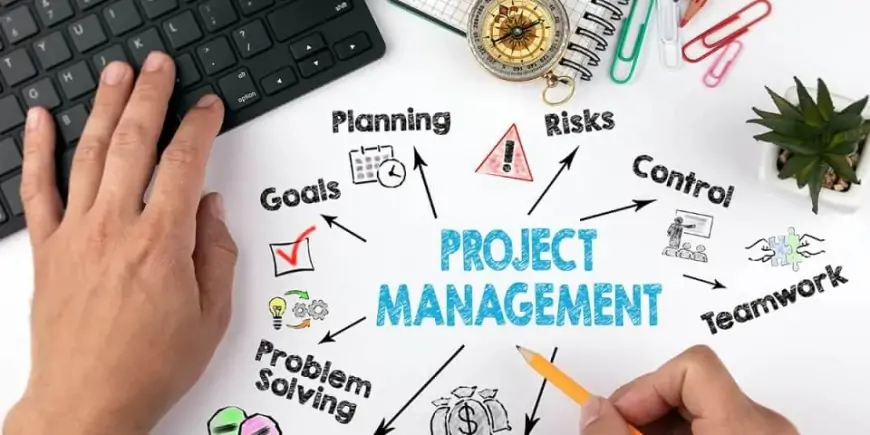5 essential Project management skills: Essential for everyone in business
Discover the top 5 vital project management skills for success. Learn how to enhance your abilities in planning, communication, leadership, and more.

What are Project management skills?
To excel as a project manager, a blend of hard and soft skills is essential. Soft skills, honed through education and experience, shape the right mindset for project management. Hard skills, specific to the role, are acquired through formal training or on-the-job experience. Common project management techniques and tools, not listed here but addressed in the FAQs below, can be learned through training or practical exposure. The selection of these tools and techniques depends on industry, company, and team preferences, offering a wide array of choices.
Hard skills for Project management
In addition to acquiring knowledge of particular project management techniques and tools, these are the hard skills you can develop through formal training or hands-on experience in project management.
1. Risk management
In project management, risk management involves consciously making decisions to maximize opportunities while minimizing potential negative outcomes for the business. As a project manager, it's crucial to understand the project's potential for profit or loss and how decisions affect these outcomes. Awareness of stakeholders' success metrics is essential, as is understanding the company's risk tolerance to guide decisions on timelines, resources, and goals.
2. Cost management
Whether assigned a budget or tasked with estimating costs, project managers must vigilantly monitor expenditures to prevent budget overruns. Cost management is a key aspect of the project management triangle, balancing cost with time and scope. The goal is to stay within budget while meeting project timelines and scope requirements.
3. Reading and writing
Project managers require strong reading comprehension and writing skills to interpret technical or legal documents and communicate project information effectively. Translating complex information into accessible briefs for project stakeholders is essential for project success.
Soft skills for Project management
You cannot acquire specific procedures or techniques for these project management skills, but these inherent abilities are crucial for your success in a project management position.
You cannot acquire specific processes or techniques for these project management skills, but these inherent strengths are vital to your success in a project management role.
4. Leadership
Although you don't spearhead projects yourself in this position, your entire responsibility involves guiding others through a project. This necessitates management and leadership skills, such as facilitating meetings, holding participants accountable, and enforcing constraints.
Project managers face a particularly challenging task in this role because they must provide leadership for the project without holding a formal leadership or decision-making position.
5. Communication
Strong communication goes hand in hand with leadership. As the point of contact for various project stakeholders who may not interact directly, you must facilitate cohesive teamwork within the project environment.
You should feel comfortable interpreting the needs of one group or department and conveying them to another. Additionally, you'll likely mediate conflicts among stakeholders and negotiate aspects like time, cost, and scope.
Project managers should excel in written, verbal, and visual communication. They encounter situations requiring all three forms, and proficiency in each enables effective communication with a diverse group of project stakeholders.
How to cultivate Project management skills?
Enhancing your expertise and knowledge can be achieved through formal education, work experience, or a combination of both.
PMP certification
A common path in project management involves obtaining the Project Management Professional Certification (PMP) from the Project Management Institute (PMI). This certification demonstrates proficiency in soft skills, technical knowledge, and understanding of business strategy necessary for project management success, including familiarity with popular project management methodologies like agile, waterfall, and hybrid approaches. Preparation for the PMP exam and acquisition of requisite project management skills typically require accumulating work experience and undergoing project management training. The number of required hours varies based on whether one holds a four-year degree. PMP training is available through PMI or various online courses, focusing on project management methodologies, processes, tools, and more. While certification validates skills and may enhance employability and salary prospects, it's not mandatory for job performance or guaranteed career success.
Agile certifications
For those preferring Agile methodologies, pursuing Agile certifications can enhance project efficiency and potentially lead to increased compensation.
Free online courses
Numerous free online courses are available to acquire project management skills, which may or may not contribute to PMP certification training hours. These courses cover both hard and soft skills essential for the role. Platforms like Coursera and edX offer university-led courses on project management tools, techniques, and skills.
Work experience
Starting as a project manager without formal training is possible, leveraging natural strengths and learning on the job. Observing project managers' daily activities and seeking clarification on their tasks can provide valuable insights into the role's requirements. Additionally, seizing opportunities within current roles to lead projects, manage teams, or organize processes can cultivate skills applicable to project management, even in non-formal project management settings.












































